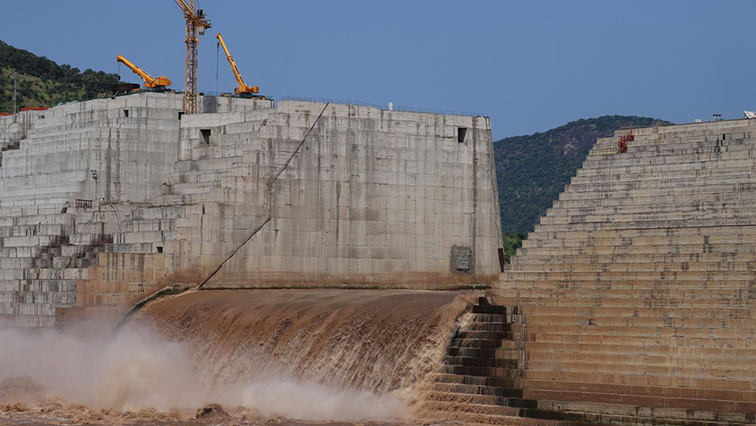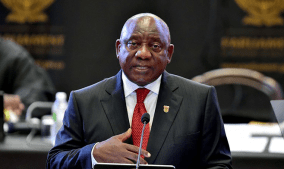South Africa has called on the United Nations Security Council to respect the African Union (AU) and continental efforts led by AU Chairman President Cyril Ramaphosa to find a solution to the Great Ethiopian Renaissance Dam (GERD) dispute between Ethiopia, Sudan & Egypt.
The GERD has been a politically charged issue for months between Ethiopia, the builder of the dam, and Sudan and Egypt over access to water resources.
At the heart of the dispute are concerns that depending on the speed at which the dam is filled by Ethiopia, countries like Sudan and Egypt which are downstream on the Blue Nile will be negatively affected by decreased water supply.
Egyptian Foreign Minister Sameh Hassan Shoukry says, “While we recognise the importance of this project for the developmental objectives of the Ethiopian people, a goal that we certainly share and support, it is essential to realize that this mega-dam, which is Africa’s largest hydro-powered facility, potentially threatens the welfare, the well-being and the existence of millions of Egyptian and Sudanese citizens.”
“Therefore the unilateral filling and operation of this dam without an agreement that includes the necessary precautions to protect the downstream communities and to prevent the infliction of significant harm on the riparian rights, would heighten tensions and provoke crises and conflicts that further destabilize an already troubled region,” Shoukry adds.
Ethiopia, Egypt and Sudan reach agreement over Nile river dam:
Ethiopia and Sudan have welcomed the intervention of the Bureau of the AU Assembly convened by Ramaphosa on June 26 that engaged the three parties ahead of a technical report that will be discussed when parties reconvene in two weeks.
However, Addis Ababa has expressed dismay that the issue was now before the Security Council (SC), as Ambassador Taye Atske Selassie Made explained.
Selassie Made says, “Ethiopia doesn’t believe the issue being discussed today has a legitimate place in the SC, it is bound to set a bad precedent and open a Pandora’s box. This council should not be a forum for exerting diplomatic pressure. As we have informed the council the tripartite negotiations between Ethiopia, Egypt and the Sudan has not yet been concluded. The three countries have in fact reached consensus on most of the prominent technical issues in the last rounds of the negotiations. That’s why Ethiopia is of the view that progress is at hand and a mutually beneficial agreement is within reach.”
The United States – which has played a mediation role acknowledged the AU-led efforts but warned that the window to achieve agreement was closing. South Africa urged the Council to allow continental-led efforts the space it requires.
Ambassador Jerry Matjila says, “The Bureau of the African Union Assembly and participating Heads of State and Government and the observers and countries concerned have requested the United Nations Security Council to take note of these developments and the fact that the African Union is seized with this matter that is of concern to the African Continent. It is therefore important that the Security Council respect the AU and our Continental efforts and provide space for the parties, through the agreed upon mechanisms in the last bureau meeting, to find a solution that will ensure a peaceful and prosperous future for these three neighbourly and sisterly countries in the African continent.”
As pressure builds on the Bureau of the AU Assembly led by South Africa along with the Presidents of the Democratic Republic of Congo (DRC), Kenya, Mali and the AU Commission Chair to reach an agreement with the three states concerned.






